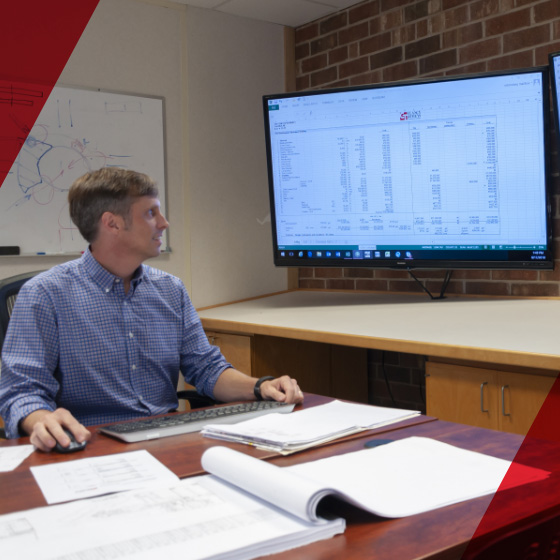Value Analysis & Cost Modeling
We will lead the project’s cost modeling and assessment. We develop a comprehensive budget for the owner—which includes hard costs, off-site costs, and soft costs.

This Process Leads to Easier Decision-Making for the Client
Value analysis is a collaborative effort that involves the owner, construction manager, architect, and trade contractors. Clancy & Theys takes our client’s concerns and turns them into measurable quantities. We’ll develop cost menus and decision-making matrices that lead to a set of choices for the owner. The goal is to provide options that respect the design intent and the owner’s interests while keeping in mind hard limits: time and money.
Once this step is complete, the team must review the information. Our designer and consultants will assess the aesthetic impact and engineered viability of each decision. The end result is a shopping list, so to speak, a menu of choices and costs. Clancy & Theys will provide the client with detailed options that combine cost savings, performance, and preservation of design integrity.

Taking Care of Every Detail
During the design phase of construction, our team provides a fully detailed cost estimate, known as a cost model. This includes a cost comparison spreadsheet after each successive estimate, showing variances, scope changes, gaps, and “scope creep.” This comparison helps us identify hot spots where a material or system has changed and no longer meets the original set of estimating assumptions.
Our entire team performs value analysis throughout the entire project. As the construction manager, Clancy & Theys works with the owner, architect, and prospective trade contractors to do this. We distill concerns down into measurable quantities and logical decision packages that can be readily assessed and selected or rejected. So we’ll develop construction menus and decision-making matrices leading to a set of choices that respect the design intent and focus on systems and other owner interests such as sustainability, while also addressing those inflexible reality principles of time and money.
